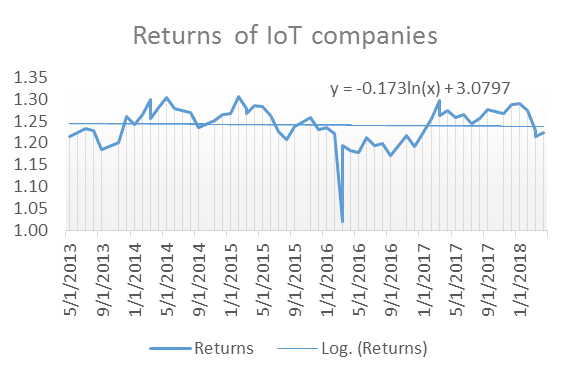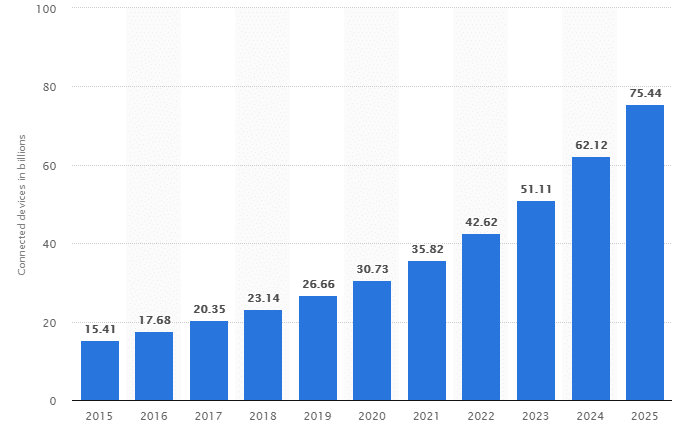Introduction to IoT and Future Trends
The Internet of Things (IoT) is poised for rapid growth, driven by advancements in network technologies like 5G and 6G, combined with the integration of Artificial Intelligence (AI). IoT’s future holds immense potential, from connecting billions of devices simultaneously to harnessing vast amounts of data to automate business processes. As IoT platforms evolve, service providers will invest more in IT and networking, unlocking new possibilities and revenue streams.
Financial Growth of IoT Companies
Recent years have seen strong financial performance in the IoT sector. A study by Pandow et al. [1] tracked the profitability of five IoT companies from 2013 to 2018. The average profitability of these companies ranged from 20% to 30% during the examined period.

Cost Reduction and Growth in IoT Devices
The average cost of a common sensor has decreased to just €0.30, making it accessible for both household devices and industrial equipment. Moreover, the number of connected IoT devices has surged from 815 million in 2015 to 30 billion in 2020, and it is expected to reach 75 billion by 2025, three times higher than in 2019.

Changing Business Attitudes Toward IoT
Businesses’ attitudes toward IoT have shifted significantly, partly due to the COVID-19 pandemic. What was once seen as a potentially beneficial investment has now become a necessity. The pandemic slowed economic growth, delaying investments and infrastructure projects like 5G network expansion, which are crucial for IoT development. However, IoT technologies have proven essential in enabling remote work, monitoring workplaces, and ensuring hygiene in public spaces.
Future of IoT
Despite the challenges posed by the pandemic, the IoT market is expected to continue growing at double-digit rates. The pandemic has highlighted how IoT systems, including remote diagnostics and telemedicine, can benefit public health. A study by S&P Global predicts that sales of IoT-enabled medical devices in US hospitals will grow nearly 20% annually, reaching $319 million by 2024, up from $136 million in 2019.
An exciting new wave of IoT applications will soon emerge, with more intuitive interfaces between humans and machines. Augmented reality applications will redefine sectors like healthcare, manufacturing, and transportation. As IoT continues to advance, it holds great promise for innovation and efficiency, shaping various aspects of our lives.
[1] Pandow B. A., Bamhdi A. M., Masoodi F., 2020, Internet of Things: Financial Perspective and Associated Security Concerns, International Journal of Computer Theory and Engineering, vol. 12, nr. 5, October 2020, I.A.C.S.I.T., http://www.ijcte.org/vol12/1276-G1791.pdf


